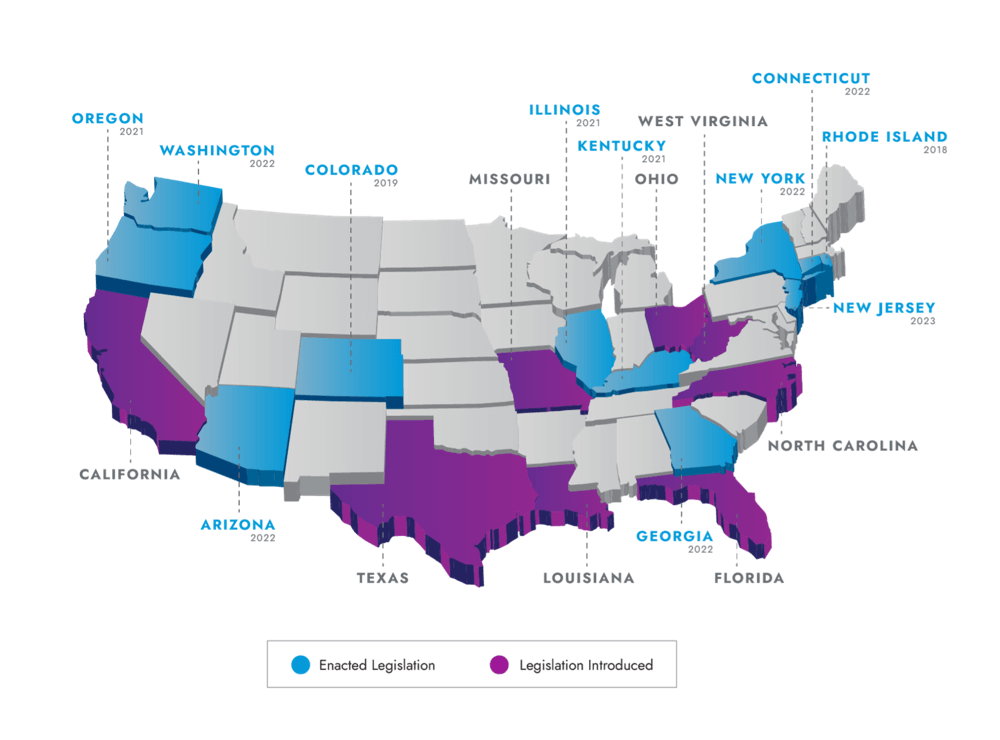The National Institute for Occupational Safety & Health (NIOSH) released a bulletin after conducting multiple health hazard evaluations, recommending the control of surgical smoke created during laser or electric surgical procedures.1
That was back in 1996.
It’s 2023 and we are now starting to see this recommendation turn into law. 11 states have passed legislation mandating surgical smoke evacuation, with other states following closely behind. In a 2022 survey conducted by McKinsey & Company, a safe working environment was the top priority to surveyed nurses.1,2 Taking that into consideration, along with the nationwide staffing shortage and burnout among nurses, these surgical smoke mandates are certainly a cause for celebration.
Passing statewide surgical smoke legislation is not effort wasted in working toward creating a safe work environment for these nurses. However, some facilities are taking matters into their own hands, feeling it’s the right thing to do for their nurses and surgical staff. New York’s Memorial Sloan Kettering Cancer Center was one such facility, implementing surgical smoke evacuation standards prior to New York’s statewide mandate. This initiative was driven by its own nurses. “The fact that we made the change from within not only boosted compliance, but it was also the right thing to do,” says Marcia Levine, Vice President of Nursing for Inpatient and Perioperative Services.3
Although this is a huge accomplishment and great news for perioperative nurses, this is just the beginning. In a Nurse.org 2022 survey entitled “This Is the State of Nursing,” only 18% of perioperative nurses replied with “I am happy where I am” in regard to their job.4
In a time when nurses are feeling unvalued and unprotected at work, could something like proactive surgical smoke evacuation make a difference?
There’s no need to wait for your state to mandate surgical smoke evacuation, you can implement your own policy and protect your perioperative staff now. After all, the value of proactively protecting nurses and surgical staff is never effort wasted. It’s a decision you certainly won’t regret, and it could make a world of difference. To learn more about a surgical smoke-free OR, click here.
1 Ogg, Mary J. Surgical Smoke Inhalation: Dangerous Consequences for the Surgical Team. NIOSH Science Blog. Centers for Disease Control and Prevention, 18 Jun. 2020, https://blogs.cdc.gov/niosh-science-blog/2020/06/18/surgical-smoke/
2 Berlin, Gretchen., Lapointe, Meredith., Murphy, Mhoire. Surveyed nurses consider leaving direct patient care at elevated rates. McKinsey & Company. February 2022, McKinsey Survey - surveyed-nurses-consider-leaving-direct-patient-care-at-elevated-rates.pdf
3 Quote gathered from Outpatient Surgery Magazine Article “The Secrets of a Successful Surgical Smoke Evacuation Program”, 9 Jan. 2023. Article | Outpatient Surgery Magazine (aorn.org)
4 Nurse.org. “This Is The State of Nursing.” Nurse.org, January 2022, State+of+Nursing+-+2022.pdf
